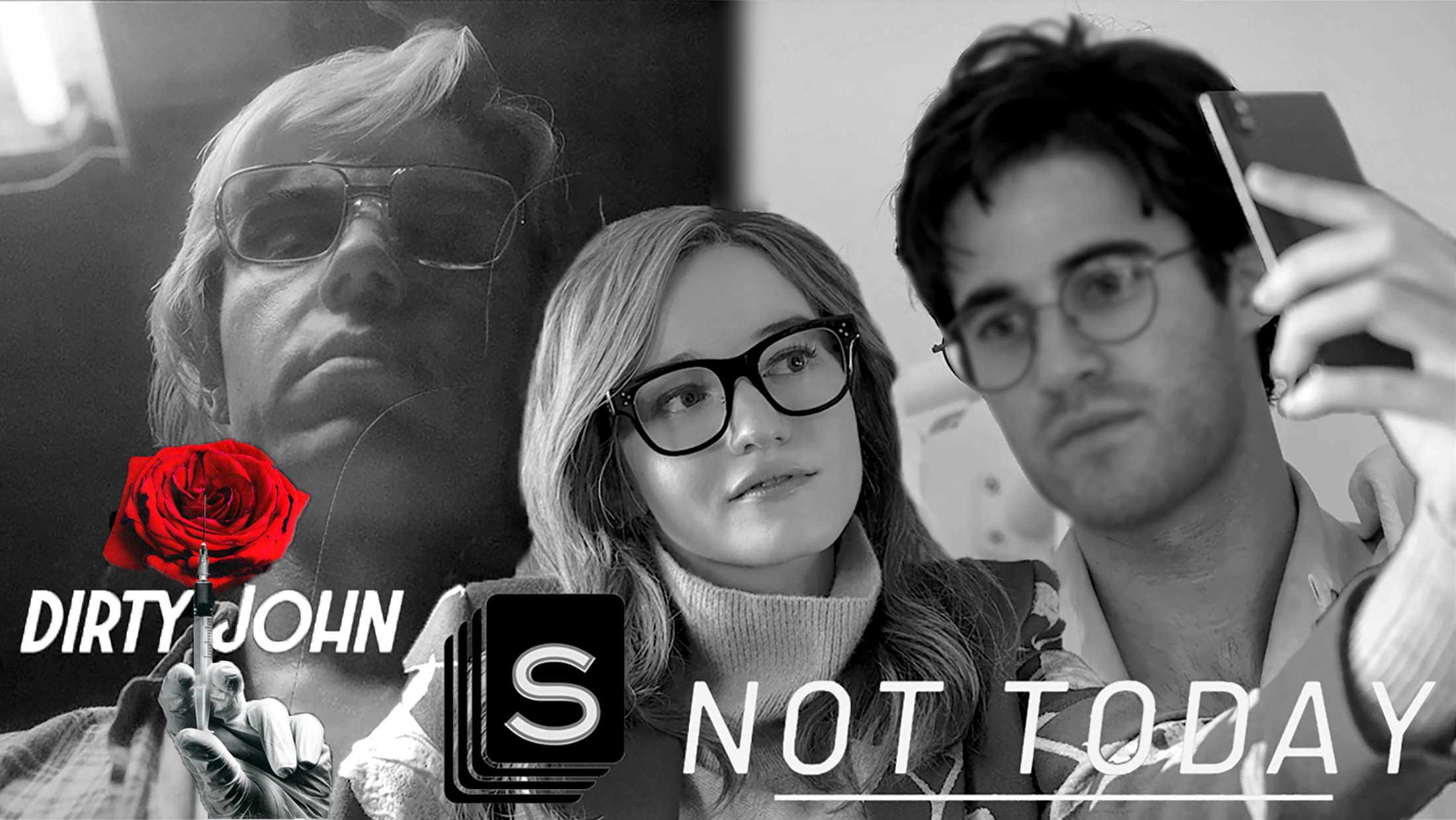True crime: obsession or education?
Students share their thoughts on whether true crime shows and podcasts are ethical and what draws them to such a complex genre. Photo collage by DANIEL PEARSON, staff photographer
“Dahmer – Monster: The Jeffrey Dahmer Story” is Netflix’s new true crime show, which has garnered almost 300 million hours of viewership in its second week on the platform.
Apart from a clunky title that doesn’t flow off the tongue or appeal to the eye, the title mentions Dahmer’s name twice. A strange addition considering the show intended to highlight the untold stories of the victims instead of the often-told story of this infamous serial killer.
But critics find that the show and its producers, Ryan Murphy and Ian Brennan, stumble to reach this goal. Variety called the show a “sepia-toned slog that rarely justifies its own existence,” while The Hollywood Reporter referred to it as an “infuriating hodgepodge.”
True crime, a genre that has gained increasing popularity in the past 10 years, has spurred countless miniseries, documentary series and podcasts. Almost every week now, a streaming platform is releasing a new exploration into complicated crimes, whether they be murder or white collar — or within The Church of Jesus Christ of Latter-day Saints, which has been the subject of three shows in the past year.
But as this genre generates a rabid fanbase and dips its toe into the realm of obsession, students have begun to wonder if such projects are ethical.
Senior television writing and production major Hannah Merritt, who chose not to watch the new Dahmer show after reading about the backlash that ensued, told The Panther that she does not find herself drawn to true crime television because of the way serial killers are often fetishized.
“I definitely feel conflicted when watching them because it feels very gross to watch the acts that are being committed and the mentality behind it,” Merritt said. “Usually it’s done in a more sanitized way to sell it. (If) you have Andrew Garfield, or Ross Lynch playing Jeffrey Dahmer, you (will) want to watch Ross Lynch more than you want to stomach roadkill being dissolved in acid.”
Much of the conversation around the new Dahmer show and other true crime shows centers on casting choices, and the tendency to cast conventionally attractive actors as serial killers, such as Zac Efron playing Ted Bundy in 2019 or now Evan Peters playing Jeffrey Dahmer.
In wake of the new show, users on TikTok have taken to making fan edits of Dahmer, and one user even noted that they were “bummed” that the show did not focus on incredibly morbid moments.
Senior film production major Jane Simonetti agrees with Merritt that casting attractive actors does not serve crime stories. Simonetti prefers true crime podcasts including “Serial,” “Not Today” and “Voices for Justice” because they do not require her to spend time sitting on the couch, and they often interview victims.
“I’ve noticed there are a lot of podcasts that focus on the perpetrator,” Simonetti said. “I love 'Voices for Justice' because she focuses on the victims and the victim’s family.”
The biggest controversy currently surrounding Murphy’s Dahmer show erupted when family members of the victims came forward saying they had not been consulted on the show and felt its release was retraumatizing.
Rita Isbell, sister of victim Errol Lindsey, said in an essay for Insider that she was shocked to see an almost word-for-word recreation of her victim statement given in court.
“When I saw some of the show, it bothered me, especially when I saw myself — when I saw my name come across the screen and this lady saying verbatim exactly what I said," she said in the essay.
Erica Aguero, a film and media studies professor at Dodge College of Film and Media Arts, told The Panther that while we cannot know why producers do not contact the families, it is worth considering why that decision was made.
“I do think producers should address why they have chosen not to consult with family members,” Aguero said. “Hopefully, these conversations will result in more complex, nuanced and developed representation of the victims as well as the social and cultural politics surrounding the crime.”
Nevertheless, both Aguero and Simonetti felt that true crime shows can be beneficial in educating people about both the psychological phenomena and possible warning signs.
“I think what draws me is, as a young woman, there’s so many stories of other young women going missing or ending up murdered, whether it be by a stranger or domsetic abuse,” Simonetti said. “I don’t find comfort in these stories, but I find that I like knowing the signs of red flags.”
More than anything, Simonetti said she feels the true crime genre has the unique opportunity to highlight previously overlooked cases.
“I feel like if we’re going to tell stories, they should focus on cases that need to be solved," Simonetti said. "We’ve already heard the stories of Dahmer and Bundy and John Wayne Gacey so many times, they’ve been told over and over again and unless you’re going to give me something new I don’t need to see this again. Let’s start focusing our attitudes and energy towards creating media that can be beneficial in solving or ending a case.”
True crime shows tread a thin line between being exploitative and entertaining or romanticizing and retraumatizing. And while such shows can be educational and shed light on previously overlooked stories, they must be handled with care or they might someday no longer warrant obsession.

